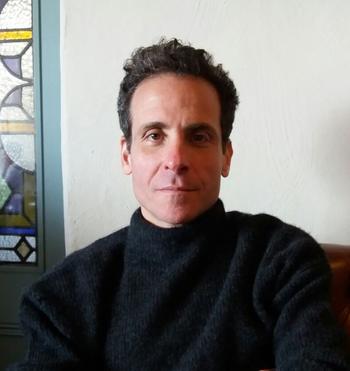Roy Tzohar (Tel Aviv University)
Senior Fellow in Research Area 3: "Future Perfect"
June - July 2024
"Time tears up this world all the time": Temporality in First Millennium Indian Buddhist Literature
For nineteenth-century European scholars, retelling the Buddha’s life story meant primarily historicising it by peeling off and discarding layers of 'myth' to reveal the 'facts,' thereby transforming narratives into a biography that is infused with post-enlightenment subjectivity and placed on the same temporal plane as the modern era. Time was hence bifurcated into a mythical, static and atemporal past, and a historical past of acts and events. An alternative paradigm is found in the complex and often overlapping (if no less politically and ideologically driven) temporal textures of South Asian Buddhist textual traditions. So, for instance, in various retellings of the Buddha Shakyamuni’s life we find both a highly individualised temporal perspective of a person enduring the hardships of an uncertain quest, and a broader cosmic temporality in which the outcome is predetermined and the Shakyamuni is one among many past and future Buddhas, all sharing the same template of a life story. Here, time, considered to be a construct, becomes a matter of perspective and a function of knowledge of causality, of things to come and pass. And lying deeper within it, like in a matryoshka doll, are further temporalities. For instance that of meditation, in which epistemic and perceptual episodes, as function of salience and attention, become the pacers of time; while reflection brings it to stillness.
Focusing on the Sanskrit works of the Buddhist poet and thinker Aśvaghoṣa (2nd century CE), the project explores these various conceptions of time and temporalities, examining how they are woven together and in what ways they clash, while always considering the temporal relations constituted by our gaze and extended by our use and understanding of these materials.
Roy Tzohar (PhD Columbia University, 2011) is an associate professor in the Department of South and East Asian Studies and the Philosophy Department at Tel Aviv University. He specialises in the Buddhist and Brahmanical philosophical traditions of premodern India, with a focus on the ways in which the function and role of language is theorised in Indian philosophical and literary works. Among his publications are A Buddhist Yogācāra Theory of Metaphor (Oxford University Press, 2018), winner of the Toshihide Numata Book Award in Buddhist Studies; Emotions in Classical Indian Thought (Bloomsbury, 2021), co-edited with Maria Heim and Ram-Prasad Chakravarthi; and Reading Aśvaghoṣa Across Boundaries (Journal of Indian Philosophy, 2019), a special issue dedicated to the works of the Buddhist poet and thinker Aśvaghoṣa, who is the topic of his next monograph. He is a former visiting research fellow at the Max Planck Institute for the History of Science, Berlin; a recipient of the Marie Curie Grant of the European Commission; and recently, recipient of Tel Aviv University’s Kadar Award for Outstanding Research.
